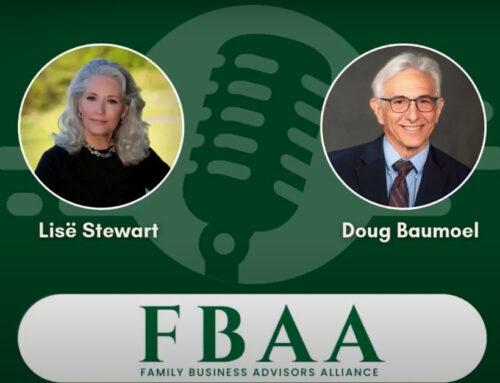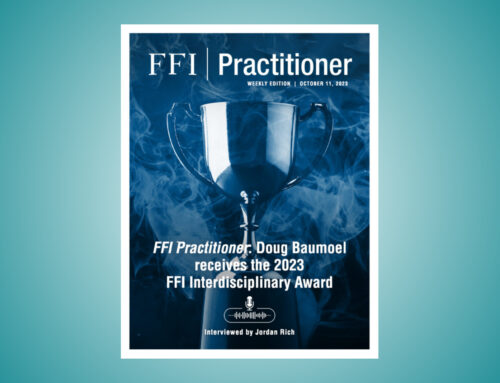When to Consider a Family Council for Your Family Enterprise
Families hoping to achieve a lasting legacy and to have the greatest impact through multiple generations can benefit from a family council designed for their unique family’s needs.
When properly developed, family councils can help families stay connected, aligned, and informed. They help families crystallize a vision and work toward realizing it, together. By establishing agreements and processes to aid in group decision making, family councils protect families from conflict, guide them through disputes over what’s fair, and help them navigate transitions.
Well-designed family councils can also direct energy toward building “Family Factor” or connectedness in the family. Family Factor is the measure of the family bond’s strength, based on shared history, shared vision, and trust. This is the enterprising family’s best protection against future conflict and gives them reason to stay connected as family in the future.
What Does a Family Council Do?
As the name implies, the family council is composed exclusively of family members. It may include elected positions, bylaws, and formal lines of authority, or it may be fairly unstructured. Family Councils can help families:
- Develop a shared vision
- Develop a family constitution (a document that sets forth the family’s values and principles, defines family objectives, and outlines how they will make important decisions)
- Stay connected with geographically dispersed family members
- Plan and manage family member employment, development, and education needs
- Manage the systemic conflict that is inherent in extended families that share assets
- Interact regularly to strengthen relationships
- Manage shared philanthropy
- Coordinate family events
- Anticipate and prepare for generational transitions
Having a Family Council can help families to act from a place of purpose, enabling big-picture thinking and achieving longer term goals. It provides a forum for forward-thinking, proactive engagement to tend to the health of the family and the health of its relationship to its shared assets.
Does Every Family Need a Family Council? No.
We don’t automatically recommend to client families that they develop a family council to help them accomplish the tasks mentioned above. Nor do we take this approach with any of the strategies available to enterprising families. We don’t believe in structure for the sake of structure, or that what some consider a “best practice” automatically makes it the right approach for the family. It is important to first understand the family, their goals, their challenges and strengths to determine whether or not a family council could get them where they want to go.
When is Having a Family Council Important?
Family Councils can be especially helpful in:
- Generational transitions/succession planning
- Developing the rising generation
- Preparing rising generation members to enter the business
- Preparing and structuring wealth transfer
When it addresses a family’s goals and challenges, a family council can have a transformative impact on the family and on its business. Family councils can ignite proactive ownership and engagement in the family group. They serve to promote a shared vision and purpose for family assets as well as the broader family legacy. Family Councils establish a forum for collective decision making and conflict management.
Shared clarity in the family group can be powerful, and family councils are helpful when the family needs to manage differences into “one voice” to guide family and business direction. A clear family directive can boost business agility and empower proactive and efficient decision making that be a key advantage for the family business.
But it isn’t always easy to get to that point. Sometimes this means that the work of the family council is challenging—the family council can be a place in which families struggle to forge acceptance of different values and vision, trying to find a path forward. Establishing the structure of the family council helps to create the conditions in the family—a strong Family Factor— that make this work possible, in that it:
- Gives families an opportunity to acknowledge and value their shared history and legacy
- Builds trust by getting to know each other better
- Reaffirms that their vision for being family in the future is important to them.
Sometimes an owners council will grow out of a family council, creating a sub-group to focus specifically on representing the family’s “one voice” or the family’s need to accommodate differences regarding the business, while the family council then focuses more specifically on family concerns.
Keep in Mind
A family council is only as effective as the fit of its design to the family, its priorities, and circumstances—and a family council is not for everyone. A family council is not an off-the-shelf solution in which a best practice model can reliably be used.
Ultimately, family councils can be a way to create a compelling reason to stay family in the future and to stay engaged in the family’s enterprise. This gets more and more critical as generations get farther away from the business’ origins. Creating a family council can establish meaning, belonging, direction, and active participation in creating a family legacy for generations into the future.
Stay in the Know
Get our latest articles, tips, and insights delivered straight to your inbox.
Share this Insight, choose your platform!
About Us
Continuity Family Business Consulting is a leading advisory firm for enterprising families. Using a full suite of service capabilities, we help families prevent and manage the single greatest threat to family and business continuity: conflict. It is through this lens that we advise our clients and build customized strategies for succession planning, corporate governance, family governance, and more. We help families improve decision making, maximize potential and achieve continuity. To inquire, contact us.












